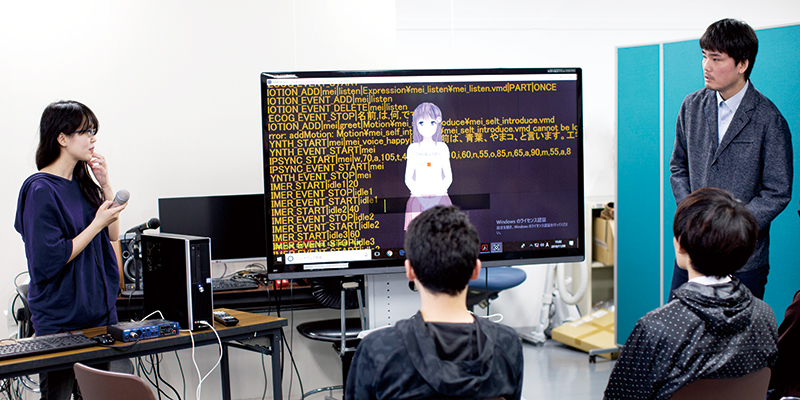
Machine Learning, Deep Learning
Can you tell us how Machine Learning relates to Artificial Intelligence?
N: Today's Artificial Intelligence research is based mostly on perception information/natural language processing and Machine Learning, grounded in iterative activities allowing computers to find the "best" method of solving a problem. Machine Learning makes use of computer features, namely its accurate repetitive operations and fast calculation ability as well as endless "stamina" in searching for solution(s), to hone in on an optimal method.
You mentioned Deep Learning?
N: Indeed, when conversation − the spoken dialogue − becomes involved, even more work is needed to perfect the Clones (or robots/agents) so as to reflect the "real world"… by going beyond just pattern recognition, static model and test pattern generation. In order to enable multimodal interpretations needed upon maintaining meaningful communications, much more must be learned.
Learning ties in with educational motivation too?
N: Yes, I'm motivated not only wanting to increase my knowledge but by positive changes that may be brought forth from my work, enriching people's lives. I think my colleagues and students are also excited that they are helping to open up new frontiers ranging from art and entertainment to media and society in general, whether with avatars or sensors.
No Business Like News Business
With data growing every minute and ″smart″ stuff galore, if not a clone some means of ″augmenting″ intelligence might be quite desirable.
N: That appears to be the sentiment of many journalists these days. Whether in the form of two-dimensional representations or humanoid robots, I understand many broadcasters in Japan and overseas are attempting to realize virtual announcers, narrators and news anchors… so, we have taken on this technical challenge as well.
For reporters, announcers, narrators and news anchors are considered ″intelligent agents.″ Such people would need to be qualified to handle sensitive information or risky situations.
N: As noted earlier, without adaptability and versatility not to mention intelligence, a conversation could not be sustained nor can situations be adeptly negotiated. Perhaps even like detectives and secret agents, heroes in Anime and movies I grew up with: quick thinking on their feet, yet knowledgeable. But in the future they may not necessarily be people.


